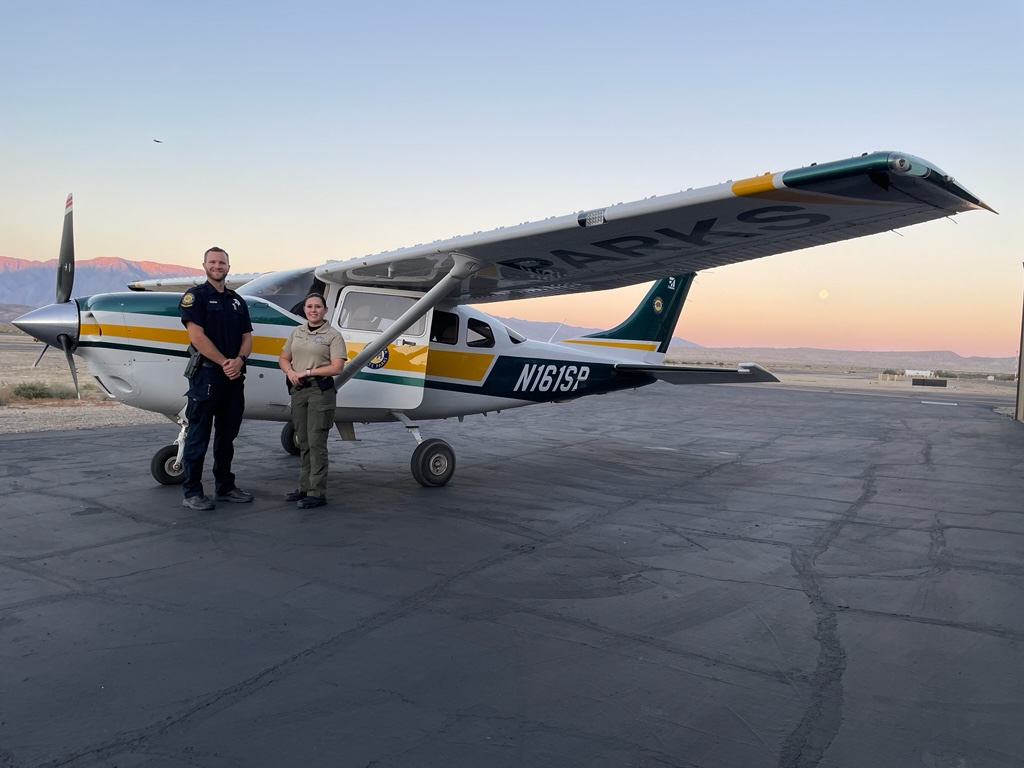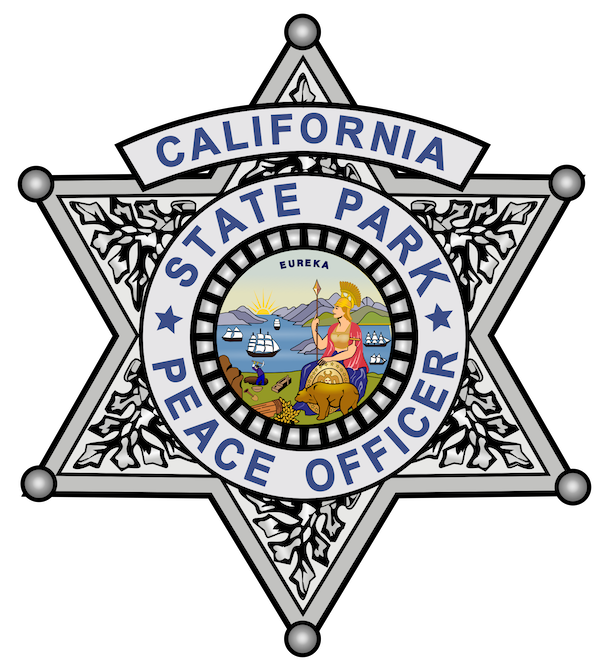


1. Do I have to be a Peace Officer to be a Ranger or Lifeguard? (Answer)
2. What are the citizenship requirements to become a Ranger or Lifeguard? (Answer)
3. Are there age restrictions to becoming a Ranger or Lifeguard? (Answer)
4. I do not meet the vision requirement of 20/40 uncorrected vision and 20/20 corrected vision and would like to have vision correction surgery. What is the timeline I have to meet in order to qualify to become a Ranger or Lifeguard? (Answer)
5. I have a driver's license in another state. When do I need to obtain a California driver's license? (Answer)
6. What are the education requirements? (Answer)
7. Do I have to buy my own uniforms for the academy? How much are uniforms and equipment? (Answer)
8. Where is the academy? (Answer)
9. Do I have to live at the academy? (Answer)
10. During the academy, are there days-off to come home (on weekends, or other days?) (Answer)
11. How long is the academy? What is involved in the academy? (Answer)
12. Do I have to attend State Parks' Academy if I currently hold a POST Basic Certificate? (Answer)
13. What specifically should I do to prepare for the academy? (Answer)
14. Do I get paid while at the academy? (Answer)
15. Do I get to choose the specific park where I will work following the academy? (Answer)
16. What can I do to prepare for a job as a State Park Peace Officer? (Answer)
17. Can I get a ride-along with an officer? (Answer)
18. Can you transfer throughout the State? (Answer)
19. What are the hours? (Answer)
20. What are the opportunities of promotions? (Answer)
21. Do you get your own state vehicle? (Answer)
22. Is housing available at state parks for Rangers or Lifeguards? (Answer)
1. Do I have to be a Peace Officer to be a Ranger or Lifeguard?
Yes. All rangers and lifeguards who work for California State Parks are Peace Officers. All State Park Peace Officer (SPPO) Cadets attend a full P.O.S.T. (Peace Officer Standard Training) certified academy. SPPOs perform patrol duties primarily by vehicle, boat, and foot; issue citations; write reports; make physical arrests for misdemeanors, felonies, and warrants; take command in emergencies; perform search and rescue activities; assist in wild land and structural fire suppression; provide emergency medical aid; and may also perform traffic control. SPPOs are required to use protective equipment which includes various types of firearms, batons, chemical agents, and handcuffs and are regularly trained and tested in physical defensive tactics and firearm use.
2. What are the citizenship requirements to become a Ranger or Lifeguard?
Per Government Code §1031.5, candidates must have applied for U.S. citizenship within three years of being appointed to a Ranger or Lifeguard position.
3. Are there age restrictions to becoming a Ranger or Lifeguard?
Candidates must be at least 21 years of age to be appointed as a peace officer in the State of California. There is no maximum application limit to apply however, per Government Code Section 21132, there is a mandatory retirement age of 65 years for state peace officers.
4. I do not meet the vision requirements and would like to have vision correction surgery. What is the timeline I have to meet in order to qualify to become a Ranger or Lifeguard?
Candidates who have LASIK vision correction surgery must have completed a 6-month stabilization period, and candidates who have RK or PRK vision correction surgery must have completed a 12-month stabilization period before being medically eligible for this position.
5. I possess a driver's license from another state. When do I need to obtain a California Driver's License?
Out-of-State candidates must obtain a valid California Driver's License before being appointed to the academy.
6. What are the education requirements?
Candidate must have completed 60 Semester Units of study at a state accredited college or university. Must have at least 21 units of general education credits satisfying General Education curriculum standards with courses.
Breakdown of 21 Semester Units for General Education
GE curricula are typically organized into broad areas to ensure students gain foundational skills and knowledge. A 21-unit GE program might be structured as follows:
- Written and Oral Communication (6 units)
- Courses:
- English Composition (3 units): Focuses on writing, critical reading, and argumentative skills. ENG 105
- Oral Communication or Advanced Writing (3 units): Covers public speaking, interpersonal communication, or advanced writing techniques.
- Quantitative Reasoning (3 units)
- Courses:
- College Algebra, Statistics, or Quantitative Reasoning (3 units): Introduces mathematical concepts applicable to real-world problems or data interpretation.
- Natural Sciences (3–4 units)
- Courses:
- Physical or Biological Science (3–4 units): May include a lab component (e.g., Biology, Chemistry, Physics, or Environmental Science) to emphasize empirical inquiry.
- Social and Behavioral Sciences (3 units)
- Courses:
- Psychology, Sociology, Anthropology, or Political Science (3 units): Examines individual and group behavior or societal systems.
- Humanities and Arts (3 units)
- Courses:
- Literature, Philosophy, History, or Visual/Performing Arts (3 units): Explores human culture, ethics, or creative expression.
- Critical Thinking or Information Literacy (3 units)
- Courses:
- Critical Thinking or Information Literacy (3 units): May be a standalone course or integrated into other GE areas (e.g., a research-focused writing course).
- Courses:
7. Do I have to buy my own uniforms for the academy? How much are uniforms and equipment?
Cadets are required to show up on the first day of the academy with all the approved basic SPPO uniform items for the academy. A list of approved items is made available prior to starting the academy and the cost of the basic cadet uniform items can be over $1000.00. SPPOs are required to wear P.O.P.E. (Peace Officer Protective Equipment).
8. Where is the academy?
The academy is located on the Butte College campus, 3536 Butte Campus Drive, Oroville, CA. It is at the Department's discretion to determine academy location for each class.
9. Do I have to live at the academy?
Cadets are required to obtain housing in the area. Cadets receive a specified allowance for housing and meals.
10. During the academy, are there days off to come home (on weekends, or other days?)
Normally, an instructional day for BVST begins at 0730 hours and ends at 1630, whereas the Butte Basic begins at 0700 and ends at 1600. Typically, BVST cadets have Saturday and Sunday off, whereas the Butte Basic has only Sundays off for the majority of the academy program. There are limited situations when cadets are required to attend class on weekends. Some state holidays are not "days off" during the academy and cadets will be in class. Nights are also required periodically throughout the academy.
11. How long is the academy? What is involved in the academy?
The Basic Visitor Services Academy (BVST) is approximately 32 weeks long. California State Parks follows P.O.S.T. course curriculum of instructional blocks and includes additional CA State Parks-specific training. (Example of subject areas: firearms, PSFA training, defensive tactics, chemical agents, California penal and vehicle codes, Emergency Vehicle Operations Course, park operations and natural resources, including the development of campfire program.) Upon completion of the academy, cadets are appointed into State Park Peace Officer classifications.
12. Do I have to attend State Parks' Academy if I currently hold a POST Basic Certificate?
No. Please visit the “Laterals and Transfers” page for information on the Lateral process and how to apply.
13. What specifically should I do to prepare for the academy?
Give yourself adequate time prior to the start of the academy, to get into very good physical shape. Cardiovascular and strength training is key to your success. We also encourage potential cadets to prepare your family for you being gone for 7 months.
14. Do I get paid while at the academy?
Yes. Cadets are full-time employees and earn a salary; at this time the salary range is $4,077.00 to $5,499.00. Most Cadets start at the low end of the range unless they are a current State employee with a salary within the range.
15. Do I get to choose the specific park where I will work following the academy?
Work placements within the state are based on needs of the Department. Cadets are assigned their initial work location at the academy. At least 45 days prior to academy graduation, you will be given a list of open assignments from which to list your personal preferences based on your ranking in the academy at that time.
16. What can I do to prepare for a job as a State Park Peace Officer?
Paid or volunteer experience in law enforcement or in the operation, protection and interpretation of a park, forest, public recreational, or historical area is desirable. Additionally, visit the parks and talk to SPPOs about what they do; to schedule a ride-along please visit State Park Peace Officer Ride-Along Request Form. Consider various ride-alongs at one reservoir (high law enforcement), one coastal park, and one park of your choice, or historic park. If possible, consider working as a seasonal Park Aide for a great way to learn about parks and the department.
17. Can I get a ride-along with an officer?
Yes. For those competing for a cadet assignment, it is highly recommended to schedule multiple ride-alongs prior to the oral interview portion of the selection/hiring process. To schedule a ride-along please visit State Park Peace Officer Ride-Along Request Form Be sure to include your contact information, including your phone number, and the geographic location you are interested in participating.
18. Can you transfer throughout the State?
Yes. However, Cadets are required to remain at their first duty assignment in a park unit for one year, and within the initial Park District for two years. (At the end of the first year, you may request an assignment at another park unit within the district) You can transfer when vacant positions are advertised.
19. What are the hours?
SPPOs work a minimum of 40 hours a week. Shifts are assigned at each location. Typical work weeks are either five - 8 hour days or four - 10 hour days. Work hours and days (shifts) are based on seniority at the work location and not on the total years of state service. Typically SPPOs bid for a shift assignment twice a year at their work location. Hours of shifts and work days vary from location to location. Many SPPOs work weekends and holidays and depending on enforcement emergencies, may be required to work overtime.
20. What are the opportunities of promotions?
Opportunities to promote are very good. SPPOs are eligible to take the Supervising State Park Peace Officer promotional exam after 2 years of service as a SPPO.
21. Do you get your own state vehicle?
Typically SPPOs drive Code-3 patrol vehicles that are shared between co-workers. There are assignments when a vehicle is assigned and not shared, such as K-9.
22. Is housing available at state parks for Rangers or Lifeguards?
Some districts provide housing for employees, including SPPO at some state park locations. Depending on availability at the park, the district superintendent will determine housing options for staff.
